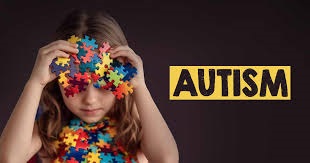Autism Spectrum Disorder (ASD)

Autism Spectrum Disorder (ASD)
Autism spectrum disorder (ASD) is a developmental disability that affects how people perceive the world and interact with others. It’s characterized by a combination of challenges with social communication, restricted interests and repetitive behaviors, and sensory processing differences.
Core Characteristics:
- Social Communication: Individuals with Autism Spectrum Disorder (ASD) may have difficulty interacting with people, interpreting others’ feelings, and using nonverbal cues such gestures and facial expressions.
- Limited Interests and Repetitive habits: People with ASD frequently have strong interests in particular subjects and exhibit repetitive habits like stringing things in a row or adhering to rigid schedules.
- Differences in Sensory Processing: Individuals with ASD may have distinct reactions to sensory information. Some may overreact to specific noises or sensations, while others may not notice particular sensory details.
Important to Remember:
- Spectrum: ASD is a spectrum disorder, meaning symptoms can vary widely. Some people with ASD may have significant challenges in all areas, while others may excel in specific areas.
- Life-Long: ASD is a lifelong condition, but with proper support, individuals with ASD can live fulfilling lives.
- Not a Disease: ASD is not a disease; it’s a different way of experiencing the world.
Early Signs and Diagnosis:
Early diagnosis is crucial for getting appropriate support. Signs of ASD may appear in early childhood, sometimes by age 2. If you have concerns about a child’s development, talk to a pediatrician or mental health professional.

Treatment and Support:
There is no cure for ASD, but there are effective treatments that can help individuals manage their symptoms and improve their quality of life. These may include:
- Applied Behavior Analysis (ABA) therapy
- Speech therapy
- Occupational therapy
- Social skills training
Living with ASD:
With the right support, people with ASD can thrive in school, work, and their personal lives. There are many resources available to help individuals with ASD and their families, including:
- The National Autistic Society (https://www.autism.org.uk/)
- Autism Speaks (https://www.autismspeaks.org/)
- The Centers for Disease Control and Prevention (https://www.cdc.gov/ncbddd/autism/index.html)
Autism is a complex condition, but with ongoing research and understanding, we can create a more inclusive world where everyone on the spectrum can reach their full potential.




Responses